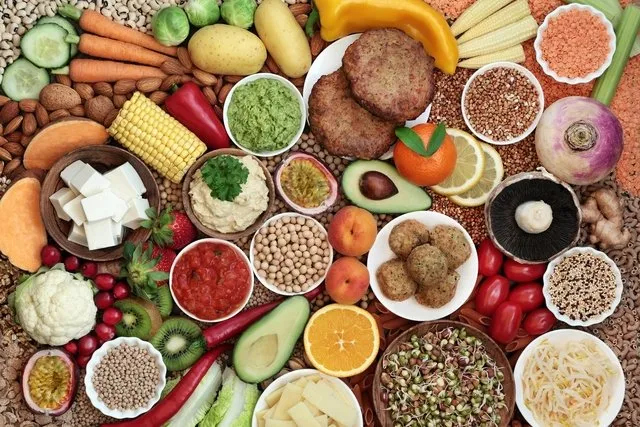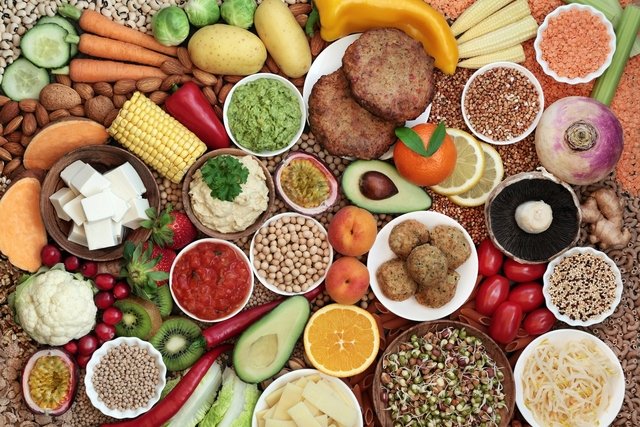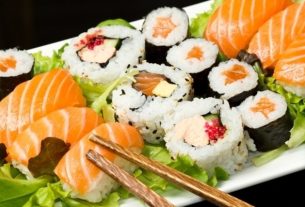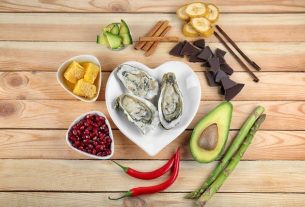Antioxidants are substances that protect healthy cells against damage caused by excess free radicals, preventing oxidative stress and the emergence of situations such as cancer, Alzheimer’s and stroke.
Antioxidants can be naturally produced by the body, through some enzymes. In addition, there are several types of antioxidants present in foods, such as vitamin C, Vitamin E, beta carotene, flavonoids, selenium and isoflavones.
There are also some antioxidant supplements that can be found in pharmacies and health food stores. However, because excessive intake of antioxidant supplements can increase the risk of health problems, it is recommended to use these products only with the guidance of a doctor or nutritionist.

What are they for
The antioxidants are indicated for:
- Detating premature aging, as they protect skin cells against damage caused by free radicals, avoiding wrinkles and sagging;
- Prevent cardiovascular diseases, as they prevent the oxidation of fat cells, balancing levels of “bad” cholesterol, LDL, and triglycerides in the blood;
- Help prevent cancer, because they improve repair and prevent DNA damage from cells, preventing the formation and multiplication of cancer cells;
- Avoid Alzheimer’s disease as they protect the cells in the nervous system against free radicals and improve blood flow to the brain.
- Help in the treatment of rheumatism, because they also have anti-inflammatory action, reducing swelling and relieving pain;
- Prevent cataracts and macular degeneration, as some antioxidants, such as lutein and zeaxanthin, protect the eyes from the sun’s ultraviolet rays.
Antioxidants act by donating the missing electron to free radicals, which are unstable molecules. Thus, free radicals become stable and do not reach healthy cells or other molecules important to the body.
Free radicals are molecules that arise as a result of burning oxygen by cells, and can be caused by air pollution, smoke, and stress, for example. Learn more about free radicals.
Foods rich in antioxidants
The following table contains some foods rich in antioxidants:
Other types of antioxidant foods are chia and flax seeds, chestnuts, chestnuts, orange, passion fruit, peach, spinach and eggs.
Types of antioxidants
The two types of antioxidants are:
- Endogenous antioxidants are enzymes, such as catalase, glutathione peroxidase and superoxide dismutase, which are produced naturally by the body and which are influenced by factors such as food, stress and sleep. With the advancing age, this endogenous production tends to decrease;
- Exogenous antioxidants: these are vitamins, bioactive compounds and minerals, such as vitamin C, flavonoids, lycopene, zinc and selenium, which are present in foods and act as antioxidants in the body.
Maintaining a varied diet rich in fruits, vegetables, legumes and whole grains, provides good amounts of exogenous antioxidants for the body.
Antioxidant supplements
Antioxidant supplements, such as vitamin C, vitamin E, selenium, and beta-carotene, can help in the prevention and treatment of situations such as high cholesterol and/or triglycerides, cardiovascular disease, and cancer.
However, there is still no scientific evidence to prove the benefits of antioxidant supplements for disease prevention and treatment. This is because it is believed that the antioxidants isolated in supplements do not work as well in the body, as the antioxidants that act along with other nutrients from food.
In addition, excessive consumption of supplements can increase the risk of diseases such as lung or prostate cancer and stroke. Therefore, the use of these supplements should only be done with guidance from a doctor or nutritionist.

Graduated from the Catholic University of Santos in 2001, with professional registration in CRN-3 No. 15097.

Sign up for our newsletter and stay up to date with exclusive news
that can transform your routine!
Warning: Undefined array key "title" in /home/storelat/public_html/wp-content/plugins/link-whisper-premium/templates/frontend/related-posts.php on line 12
Warning: Undefined array key "title_tag" in /home/storelat/public_html/wp-content/plugins/link-whisper-premium/templates/frontend/related-posts.php on line 13




